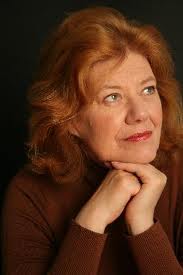The last in my series featuring Historical Novels Society conference
presenters, today’s post is an interview with mystery novelist Annamaria
Alfieri. Her third book Blood Tango launches next month from St.
Martin’s Press. Congratulations, Annamaria!
Her book’s description: “It is the most dramatic and tumultuous period
in Argentina’s history. Colonel Juan Perón, who had been the most
powerful and the most hated man in the country, has been forced out
of power. Many people fear that his mistress, radio actress Evita Duarte,
will use her skill at swaying the masses to restore him to office. When
an obscure young woman is brutally murdered, police detective Roberto
Leary concludes that the murderer mistook the girl for Evita, the intended
target of someone out to eliminate the popular star from the political scene.”
Don’t cry for me, Annamaria….couldn’t resist that terrible joke. All right,
let’s get to the meat of the interview, with questions prepared by the
wonderful conference organizer Vanitha Sankaran.
Do you follow a specific writing and/or research process?
Yes. I have the enormous privilege of being a Writer in Residence at
the New York Public Library. I am there researching and working four
or five days a week. My
and polish and polish.
For you, what is the line between fiction and fact?
I try to portray the facts and the atmosphere of the time and place
vividly and more or less accurately. But above all I want to tell a
really good story, so I don’t let the details of the history get in the
way of pace and the suspense. If I want there to be a full moon
on a certain night, I don’t worry if the moon really was full that day.
On the other hand, I never portray real people doing things that the
person in question would never have done. Historical character
assassination is unnecessary. There are plenty of bad guys in history
to go around.
Is there a writer, living or deceased, you would like to meet?
William Shakespeare, who wrote the greatest historical fiction.
Can you tell us about your latest publication?
Blood Tango is set in Buenos Aires in 1945, against the most
tumultuous period in Argentine history. It imagines the murder
of an obscure girl who was Evita Duarte’s body double. The
investigator believes the girl was murdered because she was
mistaken for Evita.
* * * *
Good luck with your launch on June 25, Annamaria, and thanks
for
participating in the blog tour.
. . . . .















